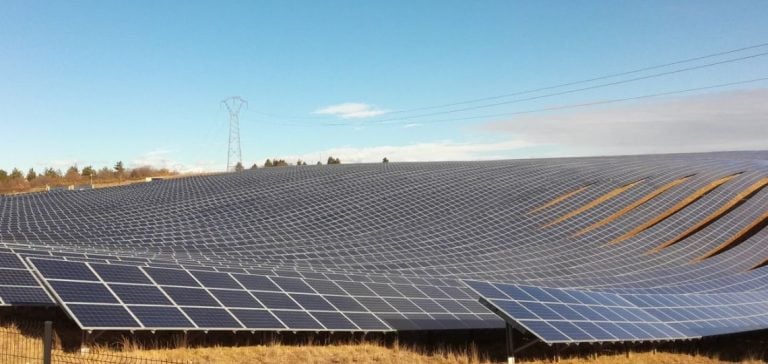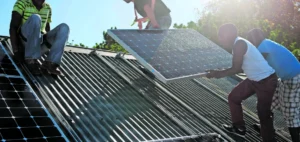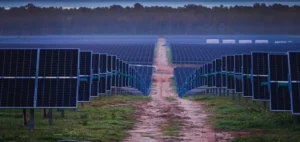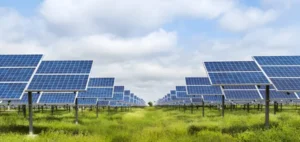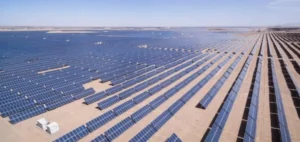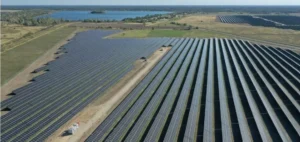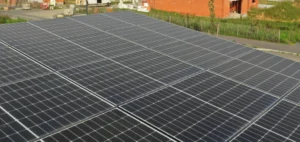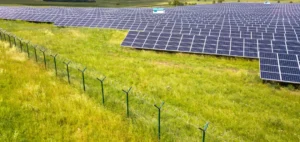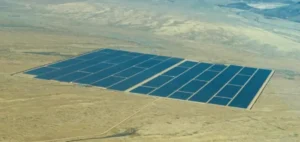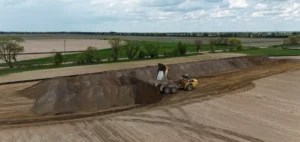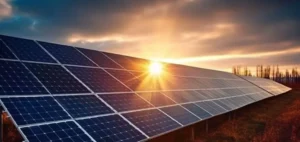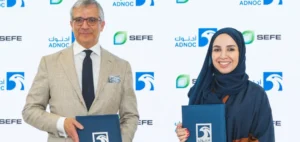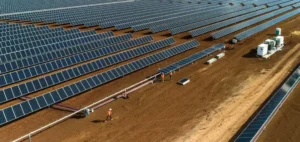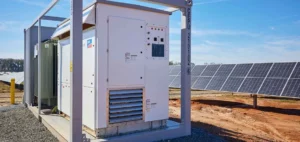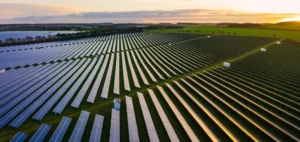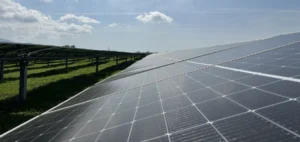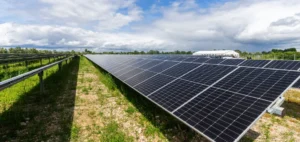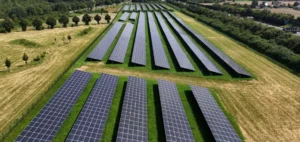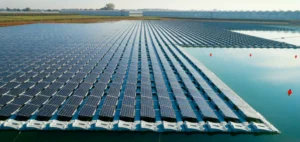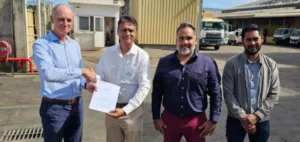Q ENERGY commissions a new solar farm in Montfort, Alpes-de-Haute-Provence.
This 5 MW project, named Les Broules 2, joins a first installation completed in 2019 in the same commune.
The new plant is part of a regional strategy to boost renewable electricity production and improve the energy resilience of rural areas.
Powering around 2,800 people, it also contributes to the gradual decarbonization of France’s energy mix. The installation of 8,736 photovoltaic panels on a former motorway derelict site means that unused land can be put to good use, thereby limiting the impact on the land.
The choice of land already degraded by human activity aims to optimize the use of resources while avoiding pressure on agricultural land or natural areas.
This strategy not only minimizes acquisition and development costs, but also meets the land management expectations of local authorities.
Optimized local management for the energy transition
The project was carried out in close collaboration with local authorities and government departments, notably the Direction Départementale des Territoires (DDT).
This cooperation made it possible to overcome administrative and environmental challenges, ensuring rapid and efficient implementation.
Les Broules 2 is an example of the successful integration of private projects into a regional dynamic, with a direct impact on local energy production.
The development of this solar park also highlights the willingness of local authorities to commit to long-term projects.
By opting for sustainable solar energy, they are freeing themselves in part from the volatility of energy prices on international markets.
In fact, the electricity produced locally directly benefits the community, which becomes a player in its own energy independence while supporting regional economic development.
An economic structure firmly rooted in the local fabric
Les Broules 2, partially installed on communal land, bears witness to the involvement of local authorities in the development of energy infrastructures.
Over and above the technical aspects, the construction of this power plant has boosted the local economic fabric.
Regional companies were mobilized for civil engineering, landscaping and site security work.
This mobilization is part of a broader drive to associate economic development with the energy transition, by involving local players at every stage of the project.
This participative management model also helps to reinforce the social acceptability of this type of facility.
The people of Montfort, who will benefit directly from this new source of energy, are involved in the project’s positive impact on the community.
In addition, the economic spin-offs are directly perceptible by the communities, thanks to the financial returns generated by the park’s operation.
A replicable model for other rural communities
This solar power plant is part of a growing trend towards the development of photovoltaic projects in rural areas.
These areas, which are often under-exploited from an energy point of view, offer great potential for large-scale solar installations.
Available land, combined with low population density, makes them ideal sites for solar park development.
The centralization of energy infrastructures around these rural areas also makes it possible to limit electricity transmission losses, while increasing the resilience of regional power grids.
The Montfort example shows how a partnership between public and private players can give rise to an economically viable and technically efficient project.
By becoming owners of part of the infrastructure, local authorities play an active role in the development of solar energy, while securing long-term economic benefits.
This model could serve as a benchmark for other communities seeking to reconcile energy production and local development.

